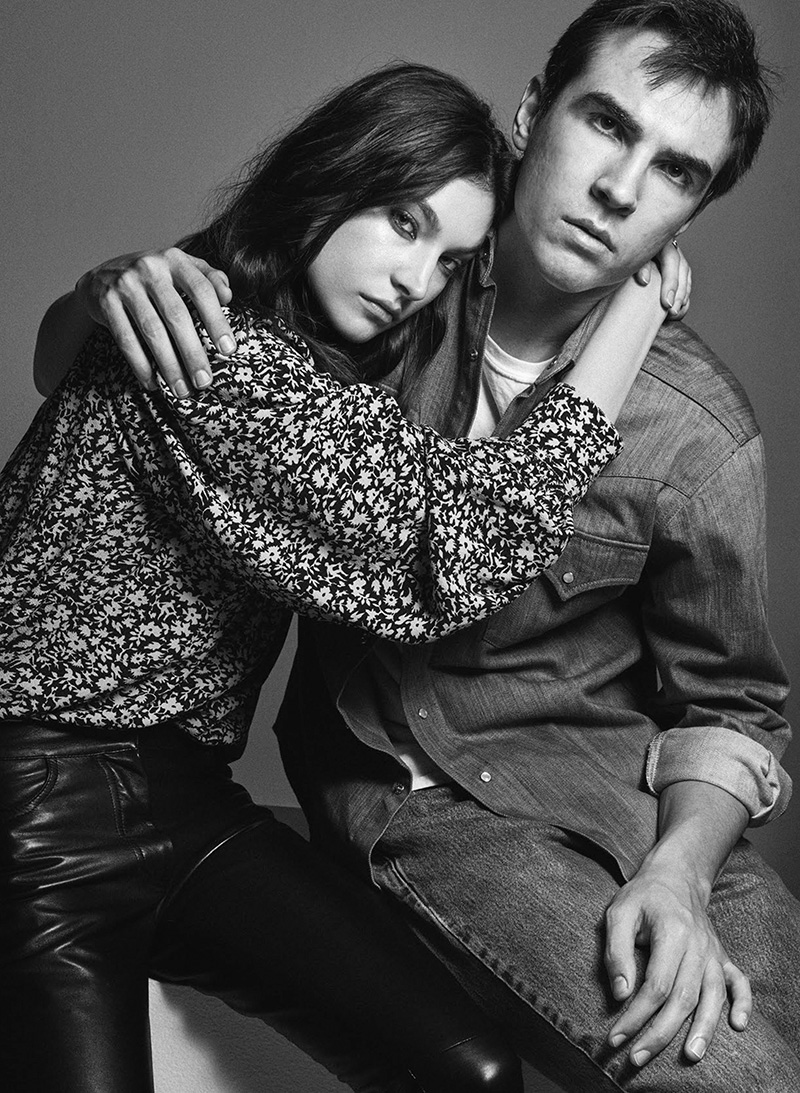In 2016, model Jacquelyn Jablonski noticed that after schooling age, there was a lack of critical programs for adults with autism—like her brother, Tommy, who is on the more severe end of the spectrum—to feel like they belong to a community and also get access to work opportunities. Thus, she decided to use her platform for change and launch Autism Tomorrow, an organization that builds platforms that support people with autism as they transition into adulthood. In honor of Autism Awareness Month this April, we caught up with Jablonski about what the charity has achieved since its founding, how she’s learned to better support her brother, and what she hopes to accomplish in this space in the future.
Why did you feel it was important to launch Autism Tomorrow?
As my brother, Tommy, was approaching adulthood, I kept asking people “what comes next?” But I wasn’t getting much information. From all the autism events I’ve attended, it’s all about early diagnosis and research, but this is a lifelong condition that does not end at 21. The whole point of Autism Tomorrow is to create job opportunities for autistic people so they feel more a part of society and belong to a community as they grow older. We’re looking to work with support programs and small businesses that are making a difference in this space.
When we first began the nonprofit we donated our funds to two programs, one is New Frontiers in Learning, a transition program in New York City where adults on different levels of the spectrum can go and be part of a community. That one helps them learn how to live independently and develop social skills so they can work and it can help them navigate relationships. The other called Somerset Hills Learning Institute, where the adults get to be on a farm and do different outdoor activities and help sell items at the local farmer’s market where they get to social with people in the town. A lot of these kinds of programs were started by people who had an autistic family member and our next grant will go to small businesses that hire adults with autism.
Has your advocacy work shifted your perception about autism in any way?
Definitely. When I was younger, maybe six years old, and my brother was four (he was identified at two) I didn’t really know much. I just hoped there was something, like a cure, that could help him by the time he got older. But as I got more involved and watched my brother approaching adulthood, I was doing a lot of research and realized there’s such a lack of programs and opportunities for autistic adults. This is something that is largely ignored and not discussed enough and it’s super important.
How have you learned to be a better supporter to your brother and other people on the spectrum?
I just try to be there for him and my family. I try to be patient and help expose him to different things. Sometimes I’ll have my friends come over and they’ll play basketball with him. We just want him to have fun and be excited and feel like he’s a part of something. It helps him have a better quality of life, which is why I want to help these programs grow.
Will you tell us more about the events you have coming up and what they’re all about?
April 2nd is World Autism Awareness Day. It’s also called Light It Up Blue Day. So, Cha Cha Matcha is partnering with Autism Tomorrow on a blue special drink and the proceeds made on April 2nd will go to our non-profit so we can raise money for these programs. Then, we’re also partnering with a Apotheke Candles on four new scents and will be having a brunch event, which will be open to the public, at the Public Hotel on April 13. The packaging for the candles will be the color of our logo, a gradient of dark blue, purple, and pink, and also include Autism Tomorrow’s mission statement. The candle factory will also host a special packaging session the days before for these candles, which will be in partnership with the organization New Frontiers in Learning that provides hands-on work for adults with autism.
What do you hope to achieve in the future?
In the future, I’d like to develop some kind of training guide for businesses who want to hire adults with autism and help educate them about how to best support autistic individuals. For example, maybe a person with autism might not give you eye contact, but that’s okay and it doesn’t mean they’re not paying attention or not listening. There’s just little things to be aware of when working with someone on the spectrum so you can be sensitive to their needs. If we develop some sort of training guide we could also make a certified sticker so people know these businesses are autism friendly establishments.
Speaking with many of these programs and parents, I know a lot of adults with autism are struggling to find jobs and it’s a shame because they’re all capable of working and being a part of the community. Right now, not enough businesses are hiring people on the spectrum but it’s so important for them to work and be exposed to people from all walks of life. I know my brother has picked up and learned so much more because of that, and I want to help extend that opportunity to other people.
